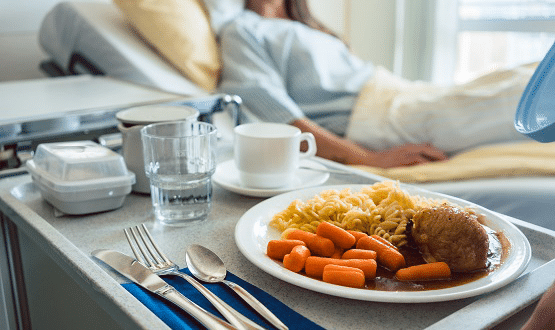Hospitals to implement digital menus under food review led by Prue Leith

NHS hospitals will be required to implement digital menus by 2022 under recommendations in a review of hospital food led by Great British Bake Off star Prue Leith.
The independent review, which aims to improve the safety and nutrition of hospital food, found technology has a role to play in collecting food choices, managing allergies and diets, and minimising waste.
“Food is a form of medicine” the celebrity chef said in a foreword of the review, adding that the recommendations made “put more emphasis on quality, rather than only on cost”.
The report, published on 26 October, recommended every hospital implement a digital meal ordering system by 2022 to allow for safe ordering and mapping of patients’ care plans; menu offers tailored to dietary needs; reduced time between ordering and meal service; and a reduction of waste.
It suggests electronic food ordering systems can be linked to electronic patient records to allow nutrition to become an integral part of overall care.
“Menus can be tailored to individual needs and conditions, so for example, patients at risk of choking would see a menu of suitable pureed food and patients with heart conditions can be offered heart-healthy meals,” the report states.
“Smart ordering, supported by technology, minimises the risk that patients with food allergies will be offered food that is unsafe for them.”
The review was ordered after a deadly outbreak of listeriosis in hospitals last year linked to pre-packaged sandwiches and salads.
The scope of the review, ordered by health secretary Matt Hancock, included the safety, nutrition, quality and production methods of food for patients, staff and visitors in NHS hospitals.
The benefits of technology are “potentially great for a relatively small investment” with hardware such as tablets capable of being used for digital food services as well as electronic patient records, the report found.
It cites £1.27million requested from the Scottish Government from 2018 to 2020 for the roll-out of a national catering information system and bedside patient electronic meal ordering system, which provides an anticipated year-on-year saving of more than £650,000.
Technology could also be used to record how much of a meal a patient has eaten to make it easier to spot nutritionally vulnerable patients, the report added.
It will also help reduce waste by allowing patients to order what they want much closer to the time they will eat it.




